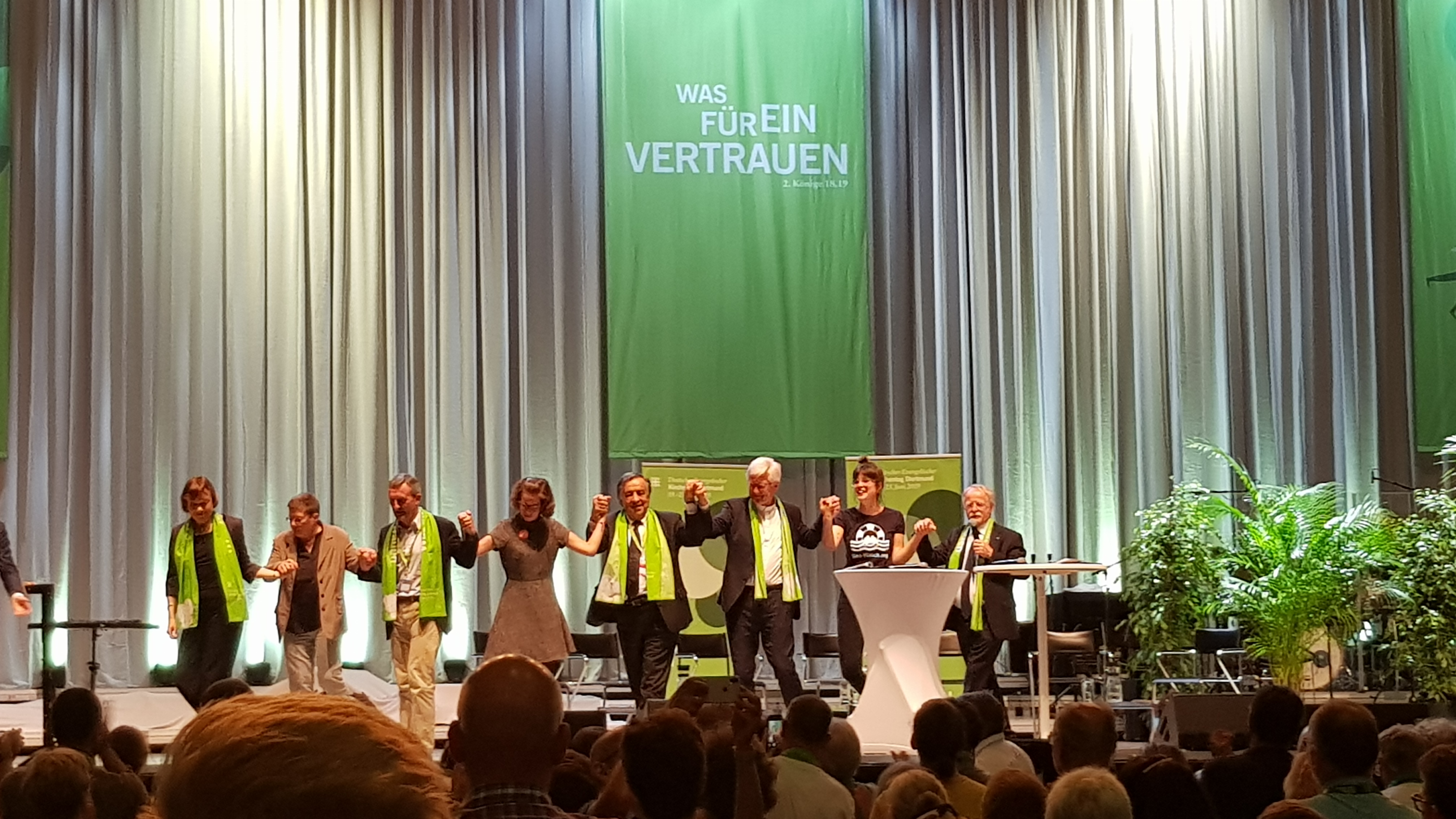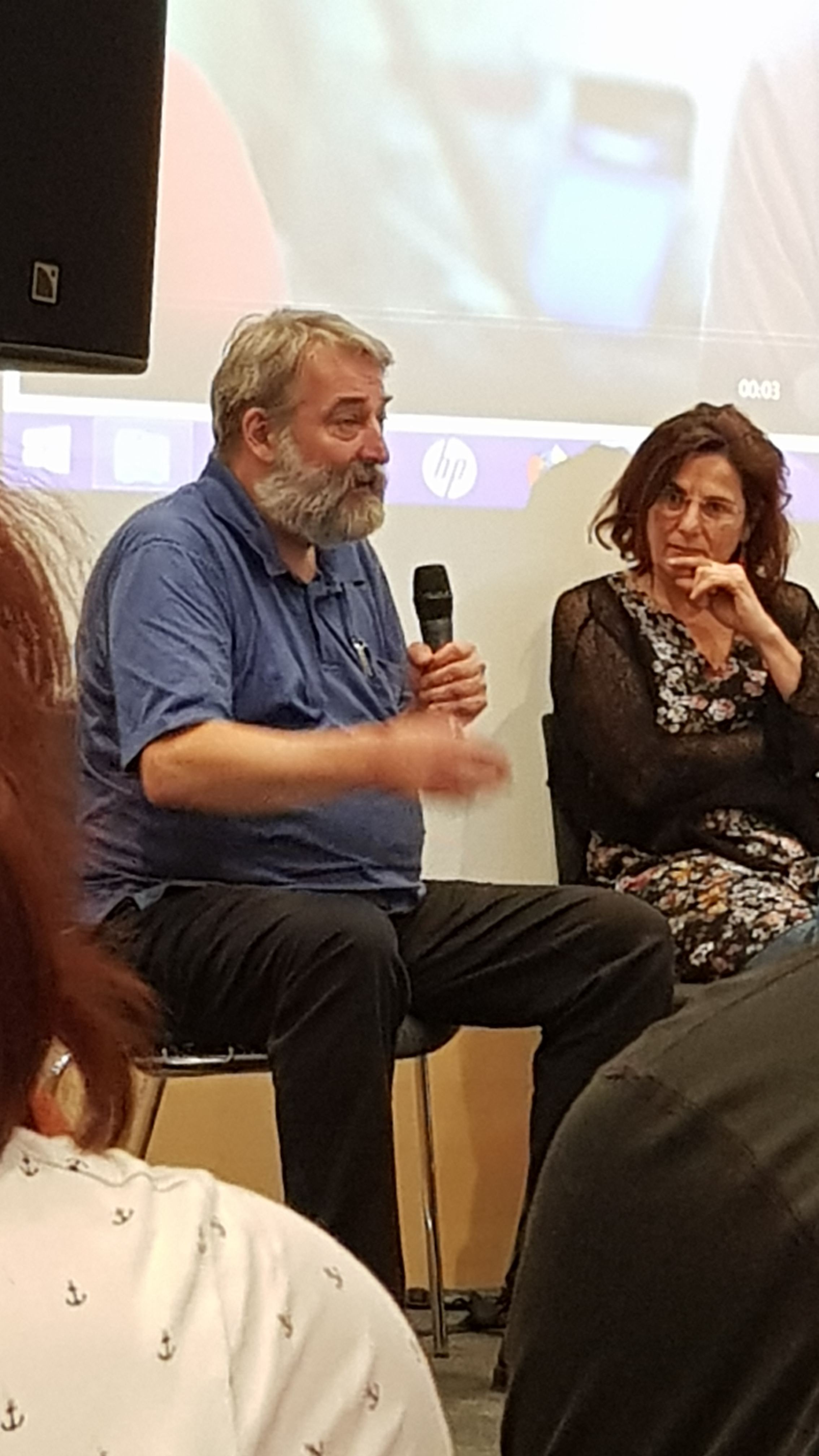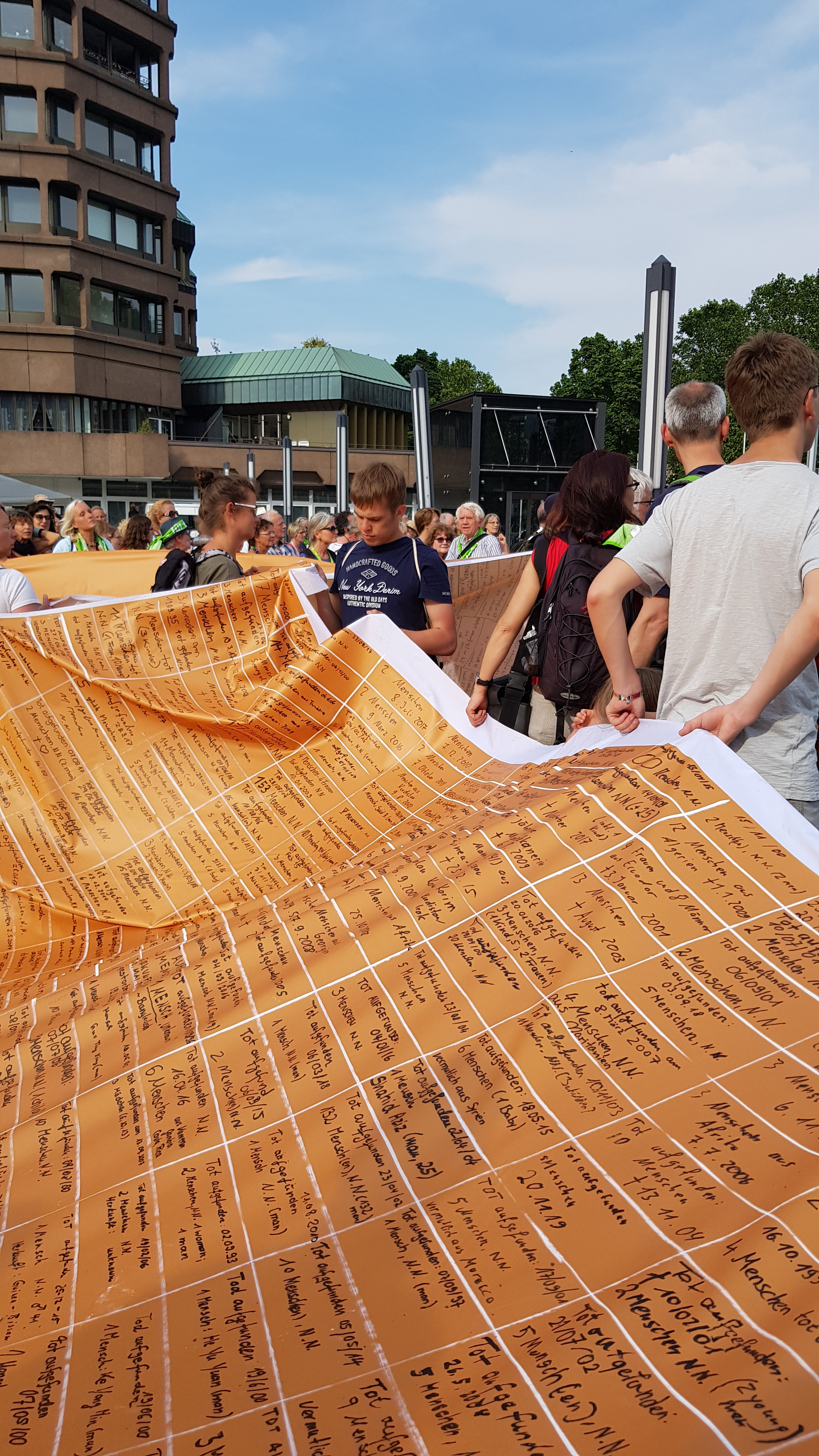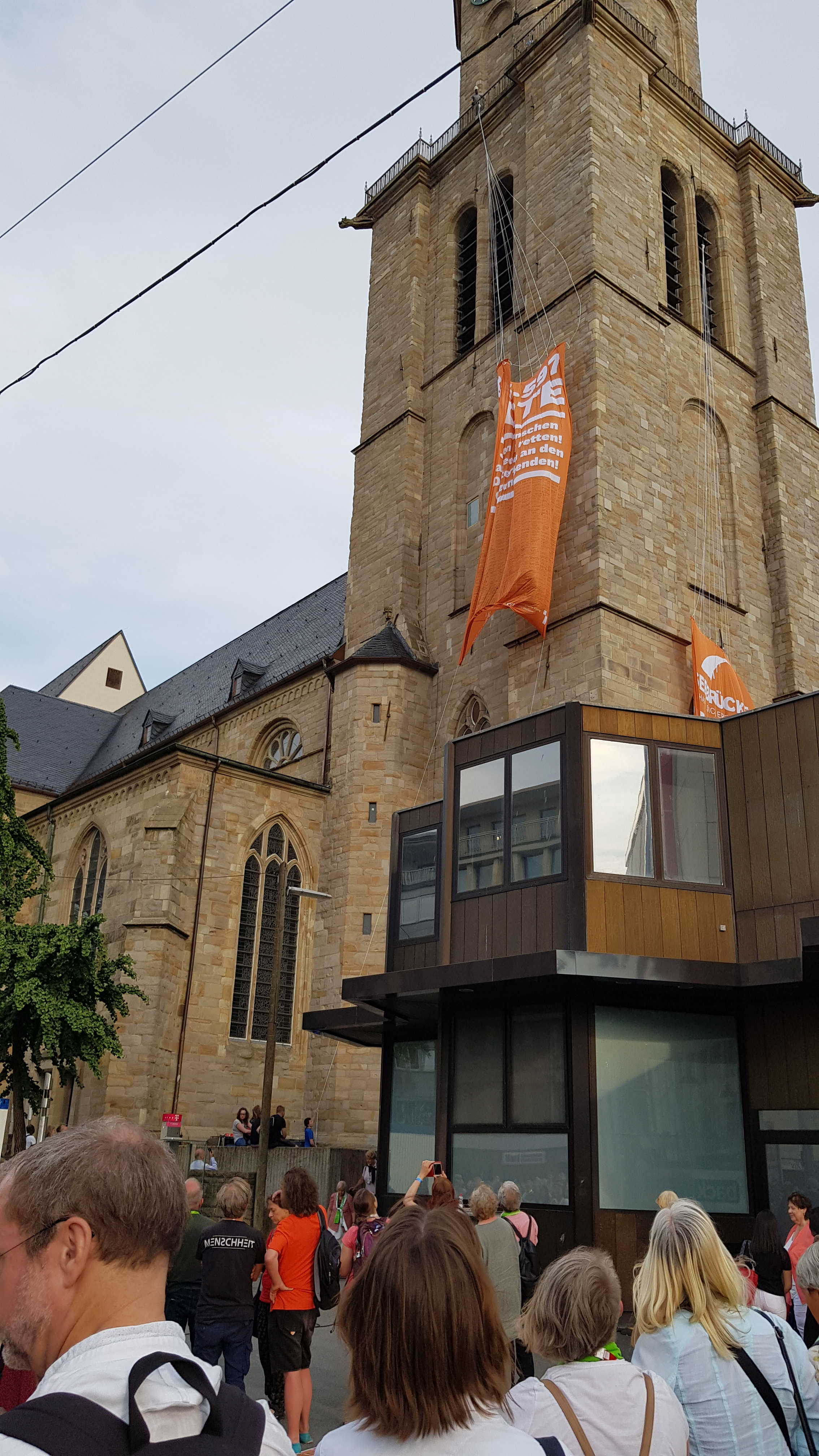A Letter from Burkhard Paetzold, serving as regional liaison for Central and Western Europe and Facilitator of work with the Roma people, based in Germany
September 2019
Write to Burkhard Paetzold
Individuals: Give online to E200392 for Burkhard Paetzold’s sending and support
Congregations: Give to D506900 for Burkhard Paetzold’s sending and support
Churches are asked to send donations through your congregation’s normal receiving site (this is usually your presbytery)
Dear Friends,
All over Central Europe, we have had another hot and dry summer. Farmers have had to face a lot of heat-related stresses, and we need to water our plants around the clock to keep them alive. People are starting to talk about the reality of climate change.
At the same time our bees are in danger and our insects are fewer in variety and number. Thirty years ago we had to clean smashed insects from our car windshield practically every other day. Now we hardly have to do it at all.
Yet at the same time, many of the leaders in this world are turning their backs on the protection of nature.
One of my favorite German hymns celebrating God’s beautiful creation in summer is “Geh aus mein Herz und suche Freud” by Paul Gerhard, 1653.
Go forth, my heart, and seek joy in this beautiful summertime, enjoying the gifts of your God; look, see the beauty of the delightful gardens and see how they have decked themselves out for you and for me…
I also have another poem in my head these days. Bertolt Brecht, the German playwright, asks in his poem “To those who follow in our wake” (An die Nachgeborenen, 1938) if our search for harmony in nature and the arts is really enough.
Truly, I live in dark times!
An artless word is foolish. A smooth forehead
Points to insensitivity. He who laughs
Has not yet received
The terrible news.
What times are these, in which
A conversation about trees is almost a crime
For in doing so we maintain our silence about so much wrongdoing!
Paul Gerhard had all reason to lament. He wrote his song during the Thirty Years’ War. Yet he still praised God’s creation. Brecht wrote in the dark time of the Nazi regime in Germany about mass immigration and the dawn of a big war and the Holocaust.
Today we realize that we seem to be in another “Thirty Years’ War” on so many fronts, among them a silent war against nature. Now, it’s not a crime to talk about trees and bees, but a necessity—and many people do—because they disappear as signals of our wrongdoings.
Some of us notice that our wrongdoing is more complex.
- Mass migration follows climate change and environmental degradation
- Deforestation and desertification follow industrial and/or monocultural farming
- Mass migration follows wars waged or fueled by arms trade to “protect” our access to oil our other strategic resources
- Excessive burning of fossil fuel strips us from resources accumulated over thousands of years in a few years, and at the same time causes greenhouse effects
- The vicious cycle of excessive meat production and consumption produces deforestation and methane from cattle, and harms the well-being of animals
- There is a growing number of populist leaders that deny this complexity and invent other narratives to manipulate voters
Many of the young generation in Europe have learned that their future is at stake. Students protest against fossil fuel in a campaign called “Fridays for Future”.
Communities try to protect their bees by spreading the word that “Cutting your lawn short should be embarrassing” and that people should plant flowers instead of maintaining carefully manicured lawns.In June, I attended the German Protestant Kirchentag, a big Protestant lay assembly, in Dortmund in northern Germany. There, together with tens of thousands of other attendees, I sang about God’s beautiful creation and discussed our ecological sins and, most importantly, encouraged other and was encouraged in the ongoing work of caring for creation.
All the above-mentioned topics that characterize our complex world were discussed in light of the Biblical teaching that “God placed humankind in the Garden of Eden to cultivate it and guard it.” (Gen 2:15)
Another issue that confronts us is the complexity of migration. And, in fact, increasingly, migration is caused by effects of climate change. Attendees of the Kirchentag felt the importance of the word: “Remember to welcome strangers in your homes. There were some who did that and welcomed angels without knowing it.” (Hebrews 13:2)
Europe is divided over the issue of migration and doesn’t have a strategy. At the Kirchentag, there was opportunity to hear the voices of refugees and of others who witness the suffering of refugees. We commemorated the thousands who died in the Mediterranean and protested against criminalizing the helpers. (The former Italian Interior Minister didn’t even allow rescue boats to enter Italian harbors.)
I was a part of a group carrying long banners made by participants in the Kirchentag which listed the names of thousands of people who drowned. We hung the banners from one of the tallest church steeples in Dortmund.
The populist neo-nationalist political party “Alternative for Germany” sees all this very differently. Many of my fellow church members and I were shocked to see them doubling their share of the vote in the recent elections (to now 23 percent). In my very secular state of Brandenburg, this party, which is led by a former Neo-Nazi, sees my denomination (the Protestant Church in Germany) as part of a left-wing and ecological conspiracy. For the members of this neo-nationalist party, climate justice and support for refugees are misleading ideologies.
They say the church has lost God and only follows the current societal mainstream. However, in truth, they themselves are actually seeking to replace God with the idol of nationalism. That’s something that’s been tried before in German history, with terrible results.
The church’s answer comes from Galatians 3:28, “So there is no difference between Jews and Gentiles, between slaves and free people, between men and women; you are all one in union with Christ Jesus” and Matthew 25:40, “I tell you, whatever you did for one of the least of these brothers and sisters of mine, you did for me.”
Do you see yourselves where you live facing a similar challenge? If so, do you feel strengthened in addressing that challenge by the words of the Bible? I believe that right now Christians on both sides of the Atlantic need each other very much.
Grace and peace to all of you.
Burkhard
Please read this important message from Sara Lisherness, interim director of Presbyterian World Mission
Dear friend of Presbyterian Mission,
Greetings in Christ! As the interim director of Presbyterian World Mission, I am grateful to have the opportunity to thank you for your continued support of PC(USA) mission co-workers.
The enclosed newsletter bears witness to some of the many ways in which God is at work in the world through long-standing relationships between global partners and the PC(USA). These partnerships are nurtured and strengthened by the presence of mission co-workers in over 40 countries; you are an important part of this partnership too, as you learn about and share how our church is involved in global ministry; as you pray for our partners and mission co-workers; and as you take action to work with others for God’s justice, peace and healing.
I write to invite you to continue joining us in partnership in three ways. First, your prayers are always needed. Please pray that God will continue guiding the shared work of the PC(USA) and global partners as we engage together in service around the world. Pray, too, for mission co-workers, that they may feel encouraged in the work they are doing under the leadership of global partners.
Second, please consider making a year-end gift for the sending and support of at least one mission co-worker. There is a remittance form at the end of this letter and an enclosed envelope so that you can send in a special year-end gift.
Finally, I encourage you to ask your session to include one or more mission co-workers in your congregation’s mission budget for 2020 and beyond. PC(USA) mission co-workers’ sending and support costs are funded by the designated gifts of individuals and congregations like yours; your gifts allow Presbyterian World Mission to fulfill global partners’ requests for mission personnel.
Faithfully in Christ,
Sara Pottschmidt Lisherness
Director, Compassion, Peace and Justice Ministry
Interim Director, Presbyterian World Mission
![]() You may freely reuse and distribute this article in its entirety for non-commercial purposes in any medium. Please include author attribution, photography credits, and a link to the original article. This work is licensed under a Creative Commons Attribution-NonCommercial-NoDeratives 4.0 International License.
You may freely reuse and distribute this article in its entirety for non-commercial purposes in any medium. Please include author attribution, photography credits, and a link to the original article. This work is licensed under a Creative Commons Attribution-NonCommercial-NoDeratives 4.0 International License.



